Were '˜secret' concentration camps run in Scotland during WWII?
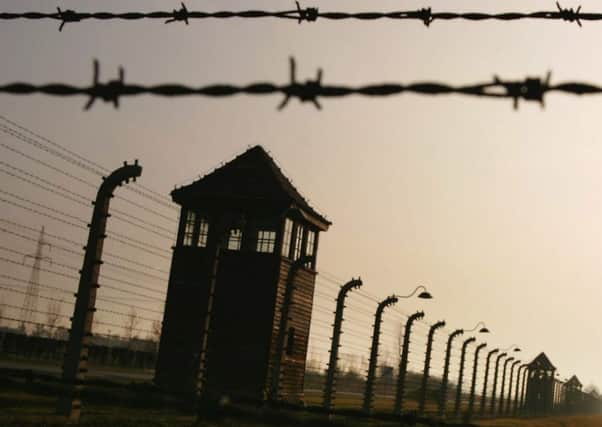

The Concentration Camps of Scotland
On 14 June 1945 Robert McIntyre, MP for Motherwell, rose in the House of Commons to ask if the Under-Secretary of State for Scotland;
Will make provision for the inspection, at any time, by representatives of the various districts of Scotland of any penal settlements, concentration camps, detention barracks, prisons etc within their area.
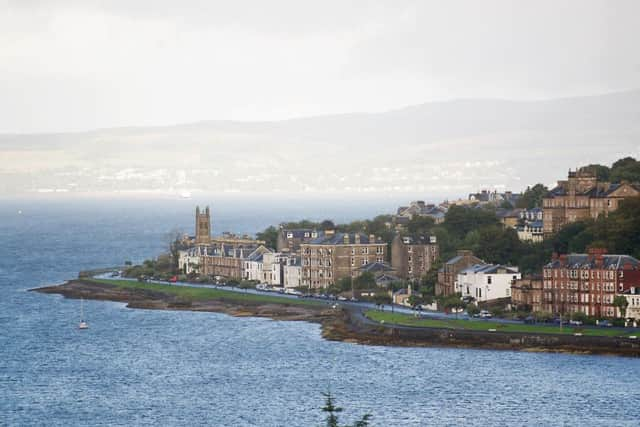

Advertisement
Hide AdAdvertisement
Hide AdOn the same day that this question was asked in Parliament, Moscow Radio broadcast the accusation that a concentration camp was operating in Inverkeithing; just eight miles from Edinburgh.
Older inhabitants in the south of Scotland still have fond memories of the thousands of Polish soldiers who defended the east coast of the country against a possible German invasion in 1940, which, it was feared, might have been launched from Norway.
Darker side
There was however a darker side to the activities of the Polish army based in Scotland.
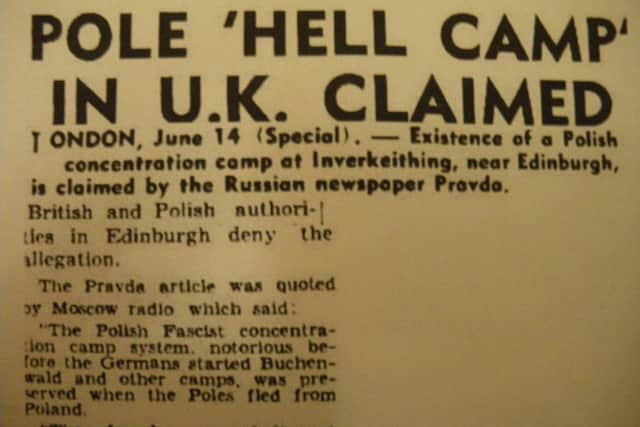

Soon after arriving in London with the remnants of the Polish army, following the fall of France, General Wladyslaw Sikorski, the autocratic leader of the Polish government-in-exile, decided to purge his fellow Polish exiles of anybody likely to challenge him for the leadership of the Polish government.
At a meeting of the Polish National Council on 18 July 1940, Sikorski announced bluntly; There is no Polish judiciary. Those who conspire will be sent to concentration camps.
General Marian Kukiel, appointed Commander of Camps and Army Units in Scotland by Sikorski, was given the task of setting up a special camp for political prisoners.
The location chosen for what Sikorski himself described as a concentration camp, was to be the Isle of Bute and it was to there that various army officers and politicians were transported.
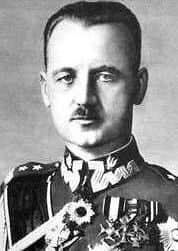

Advertisement
Hide AdAdvertisement
Hide AdIn addition to his political opponents, Sikorski also had sent to Bute anybody else whom he felt should be locked up, including those of what he termed, ‘improper moral character’.
These included drunks, homosexuals and the sexually promiscuous.
The camp near Rothesay on the Isle of Bute was not especially rigorous - its purpose was really to keep Sikorski’s enemies out of circulation. It was soon decided though to set up another, tougher establishment for what were known as ’pathological’ cases; which chiefly meant homosexuals and those with a weakness for drink. This was to be on the mainland at Tighnabruich, voted in 2002; ’The prettiest village in Argyle, Lomand and Stirlingshire’.
Other camps soon followed at Kingledoors, Auchterarder and Inverkeithing.
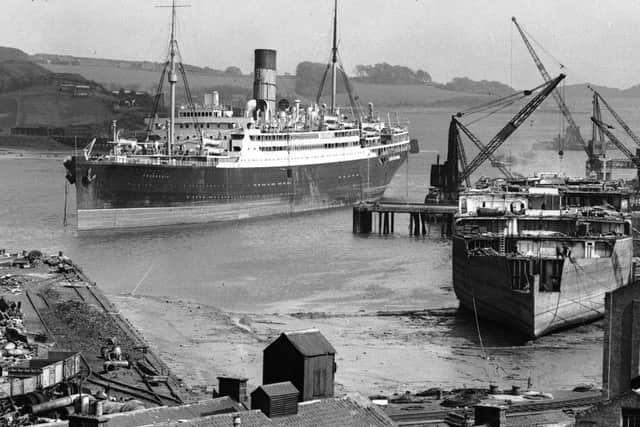

Local residents were told by the Polish authorities that these camps held those suspected of being Nazi agents, which was guaranteed to deprive the inmates of sympathy. Never the less, rumours began to circulate about beatings, starvation, torture and even, it was said, deaths among those held there.
Some at least of these stories were true.
On 29 October 1940, a Jewish prisoner called Edward Jakubowsky was shot dead in the camp at Kingledoors.
Under the terms of the Allied Forces Act, the camps were treated by Britain as being sovereign Polish territory and the Scottish police were not allowed to investigate deaths there.
MPs
Advertisement
Hide AdAdvertisement
Hide AdSome MPs became uneasy about the situation, constituents having alerted them to the rumours of ill treatment and arbitrary detention.


Samuel Silverman, for instance, MP for Nelson and Colne, rose in the House on 19 February 1941 to draw attention to the plight of two Jewish brothers, Jack and Benjamin Ajzenberg, who were being held in one of the Polish camps in Scotland.
One of the most disturbing aspects of the business was that the Polish authorities had an apparent predilection for the imprisonment in their camps of Jews. I
saac Deutscher, the Polish writer, journalist and biographer of Stalin, was living in England in 1940 and decided to volunteer in the Polish army.
He travelled up to Scotland for this purpose and was promptly arrested and held in the camp on the Isle of Bute.
Being both a Jew and a communist made him politically suspect from the point of view of senior officers.
Anti-Semitism
Anti-Semitism had been endemic in the Polish army before the beginning of the Second World War and it became even worse as the war progressed.
Advertisement
Hide AdAdvertisement
Hide AdSome Poles had been drafted into the German army following the invasion of Poland in 1939. When such soldiers were captured by the British, they were handed over to the Polish forces in Scotland, who then enlisted them in their own army.
The consequence was that by 1945, over half the Polish army in Britain had also served in the Wermacht.
To use a modern expression, the Polish army was ‘institutionally racist’; at least as far as Jews were concerned.
On 16 April 1944 Evelyn Walkden, Member of Parliament for Doncaster, announced in the House of Commons that the Polish Army Command had given orders that when ENSA, the Entertainments National Service Association, sent concert parties to entertain their troops; no Jewish artists were to be included. Such attitudes permeated the whole of the army.
End of the war
Shortly after the end of the war in Europe, the camps in Scotland became the focus of worldwide attention.
Dr Jan Jagodzinski was a Jewish academic working in London for the newly installed, pro-Soviet government in Warsaw.
On 8 June 1945, a few months after the collapse of Germany, he was arrested in London and taken to Scotland by the Polish military police; where he was imprisoned in a camp called Inverkeithing.
Advertisement
Hide AdAdvertisement
Hide AdThe Polish army claimed that there was nothing sinister about this place and in the end, allowed representatives of the world’s press to visit Inverkeithing.
This proved to be something of a public relations disaster, because the first prisoner to whom reporters spoke turned out to be yet another Jew; Josef Debosiewicz. He told them that a few weeks earlier a prisoner at Inverkeithing had been killed by guards. This was admitted by the commandant of the camp, who claimed that the man had been shot dead while escaping.
Not proven?
It is impossible to say for how long after the end of the Second World War the Polish concentration camps continued to run in Scotland, but it must have been at least a year.
On 16 April 1946, a year after the end of the war in Europe, the MP for Fife West, Mr William Gallacher, rose in the Commons to ask the Secretary of State for War about the case of two men who were being held in a camp in Scotland.
Inevitably, the men concerned, David Glicenstein and Shimon Getreuthendler, both turned out to be Jews.
Seventy years after the event, it is impossible to be sure just what was going on in the prison camps being operated in Scotland by the Polish army. Were these really concentration camps as we understand them today? It is, to say the least of it, alarming that all the named prisoners who appeared in the newspapers or were mentioned in Parliament were Jews.
Certainly, General Sikorski himself believed that he had arranged to set up concentration camps, although in fairness it must be said that other officers claimed that these places were no more than military detention barracks of the kind run by all armies.
Advertisement
Hide AdAdvertisement
Hide AdUntil further evidence emerges, perhaps the safest verdict to bring in is the Scottish one of ‘Not proven’.
Simon Webb is the author of British Concentration Camps; A Brief History from 1900-1975, published by Pen & Sword Ltd and available to buy here